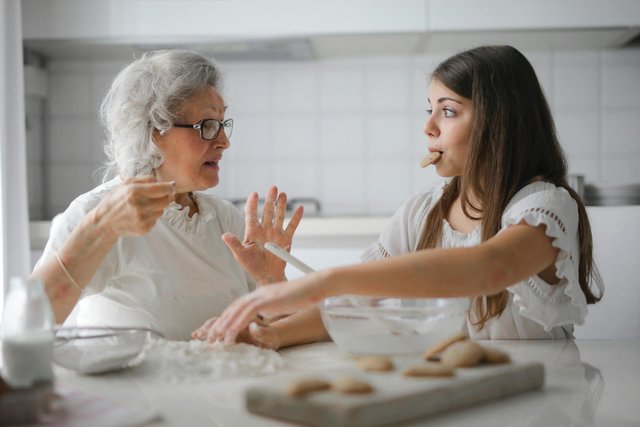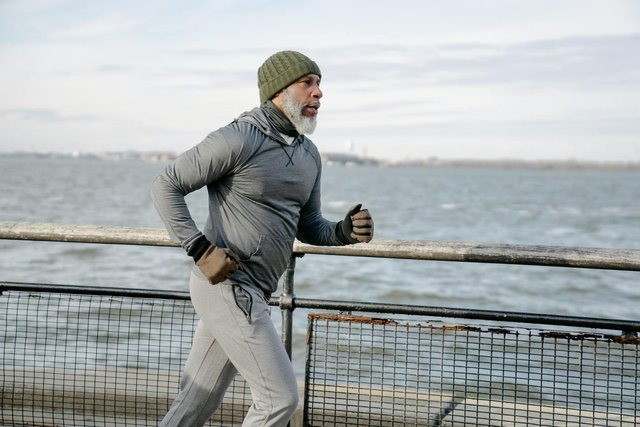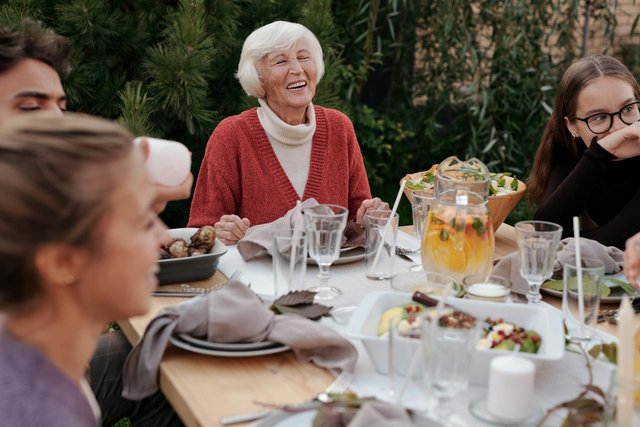| My username is @jimiaera02 and I'm from Bangladesh. |
|---|
Hi friends of Steemians, how are you all doing? Thank God. I'm doing quite fine too. We are grateful to Moderator @sahmie sir for arranging such a lovely competition for the healthy steem community. The competition's name is: caring of our elderly. An essential component of society that calls for consideration, empathy, and comprehension is providing care for the aged. Giving people the right care is crucial to ensuring their well-being as they age since they may have a variety of physical, mental, and social difficulties.
How can we promote better health for the elderly in our communities?
Health Education Initiatives: Conduct talks and workshops about subjects like mental health, medication management, fitness, and nutrition. Give elderly people information on how to avoid common health problems by taking preventive steps.
Routine Health Examinations: To keep an eye on seniors' health and identify any potential problems early, plan frequent health check-up camps. Promote regular checkups with the doctor and screenings for common age-related ailments.
Exercise Regimens: Create fitness programs, such as low-impact aerobics, yoga, or tai chi, that are customized to the requirements and skills of senior citizens. To encourage exercise, start walking clubs or provide guided walks in nearby parks.
Social Support Systems: To promote social connections and counteract isolation, encourage the creation of social organizations, community centres, or senior groups. Plan social gatherings and exercises to keep senior citizens active and involved in the community.
Help with Nutrition: Make wholesome meals accessible by implementing community meal programs or forming alliances with nearby eateries and food delivery businesses. Teach seniors about a balanced diet and provide meal planning resources.
What are some ways we can promote good mental health and well-being in older adults?
The following are some strategies to improve and promote mental health in this population:
Relationships with others: Promote regular social gatherings with loved ones, neighbours and neighbours. Encourage involvement in organizations, clubs and senior centres. Encourage family members to stay in touch with each other through technology. Engaging in exercise: Promote frequent activity, even if it's as simple as swimming, walking or light stretching.
A Nutritious Diet To promote both physical and mental health, encourage a nutritious, balanced diet.Mindfulness and relaxation techniques: Introduce mindfulness techniques such as deep breathing exercises and meditation.
Increase cognitive function: Promote cerebral pursuits such as games, puzzles, reading and picking up new skills. Mental acuity can be preserved through ongoing cognitive activity.
Routine Health Check-ups: Make sure to schedule regular check-ups for quick treatment of any medical problems. Effectively manage chronic diseases to reduce their negative effects on mental health. Sleep hygiene: Promote healthy sleep habits and take care of any problems with sleep. Setting up a comfortable sleeping space and following a regular sleep routine is crucial.
Sustaining individuality: Encourage as much independence as possible in daily activities. Mental health can benefit from a sense of control. Expert support: Promote frank conversations about mental health issues.
Religious and Cultural Activities: Encourage participation in personally meaningful cultural or spiritual pursuits. This activity provides a sense of purpose and belonging.
Therapy for memories: Promote thinking about your happy memories. A sense of fulfilment can be cultivated by reflecting on a rich life history. Remember that since each person is different, a tailored strategy is often the most successful.
Share some strategies we could use for managing chronic pain in the elderly?
An all-encompassing strategy that considers both psychological and physical aspects is needed to manage chronic pain in the elderly. The following tactics are worth considering:
interdisciplinary Approach: Collaborate with a team of medical professionals, including physicians, psychologists, physical therapists, occupational therapists, and pain management, to develop a holistic strategy for treating pain. Handling Medication: As needed, take prescription drugs to manage pain. For appropriate side effects, medication combinations, and adjustments depending on the patient's age and health, caution is necessary. When suitable, take into account non-opioid analgesics such as acetaminophen and nonsteroidal anti-inflammatory medications (NSAIDs). Opioid drugs should only be used very sparingly when all other options have been explored. Regular monitoring and assessment are crucial to ending misuse and addiction. Physiotherapy: To improve strength, flexibility, and range of motion, design a personalized exercise program. Occupational therapy assists in implementing adjustments at home to lessen pain triggers and enhance day-to-day functioning. To make daily tasks easier, provide resources and assistance. Deal with painful mental health issues like sadness or anxiety. Complementary and Alternative Therapies: therapies other than traditional ones, such as chiropractic, acupuncture, and massage therapy. Examine the coordinates in the Arctic. Verify the legitimacy and safety of the healthcare providers. As you continue to assess the pain management plan's efficacy, make any required adjustments. A lookout for signs of drug dependence, tolerance, or side effects is advised. To tailor these methods to the particular requirements and situations of an elderly person with chronic pain, always seek the advice of a medical practitioner. Tailored treatment plans are necessary for efficient pain management.
What can we do to improve access to healthcare for older adults?
Increasing access to health care for older people requires addressing multiple aspects of health care infrastructure, community support, and individual needs. Following are some ways to improve access to health care for older people:
Health Care Facilities: Expand Health Care Facilities: Increase the number of health care facilities, especially in locations with a high concentration of senior citizens. Encourage and invest in telehealth services to enable remote consultations, especially for routine check-ups and non-urgent issues.
Cash Assistance: Affordable Health Care: To reduce financial barriers, support laws that guarantee access to prescription drugs and other forms of affordable health care.
Insurance Access: Make it easier for people to obtain health insurance and consider options for additional insurance coverage that senior citizens need.
Transportation Providers: Accessible Transportation: Provide and improve transportation options to make it easier for senior citizens to get to medical facilities, especially in remote or underserved areas.
Residential and Community-Based Programs: Increase the availability of home-based health care services so that senior citizens can receive treatment in the comfort of their own homes. Community Health Centers: Encourage and support community health centres that provide comprehensive medical care to senior citizens in their neighbourhoods.
What can be done to address social isolation among older individuals?
An essential component of society that calls for consideration, empathy, and comprehension is providing care for the aged. Giving people the right care is crucial to ensuring their well-being as they age since they may have a variety of physical, mental, and social difficulties.
Frequent medical check-ups: To monitor and treat any health issues, schedule routine medical check-ups with medical professionals.
Managing medications: Ensure that they are taken as directed and keep an eye out for any side effects or changes in health.
Nutrition: To support general health and well-being, provide a balanced and nutrient-rich diet.
Emergency Response strategy: Make a strategy for emergencies that includes the numbers of local emergency agencies and medical professionals.
Psychological health: Pay close attention to the emotional needs of the elderly and offer consolation and assistance when needed.
Have frank conversations to better understand their preferences, worries, and any changes in their health or well-being.
Patience: Show empathy and patience, particularly while assisting someone who is experiencing memory loss or cognitive impairment.
The elderly require teamwork from family members, medical experts, and the larger community to properly care for them. A more inclusive and caring society benefits from placing a higher priority on the well-being of the elderly.
I invite my friends: @zisha-hafiz @abdul-rakib @jebanikajeba @claudia









Upvoted. Thank You for sending some of your rewards to @null. It will make Steem stronger.
Downvoting a post can decrease pending rewards and make it less visible. Common reasons:
Submit
Thank you for inviting in this amazing contest. Best of luck to you.
Downvoting a post can decrease pending rewards and make it less visible. Common reasons:
Submit
Beautiful content. Good diet, regular exercise and proper health care facilities.....like you mentioned are key to keeping the elderly strong and ok.
Thanks for these beautiful writeup. I'll suggest, you add more paragraphs to your work as it makes it easier to read.
Downvoting a post can decrease pending rewards and make it less visible. Common reasons:
Submit